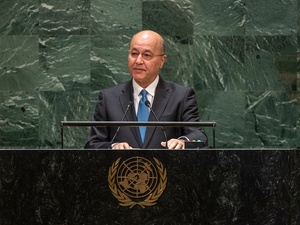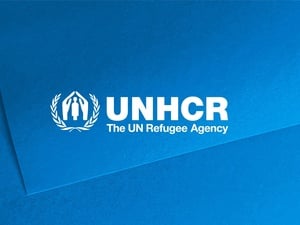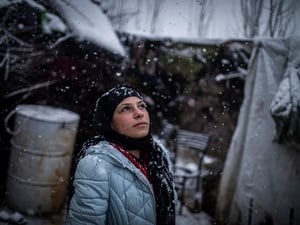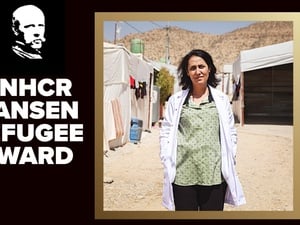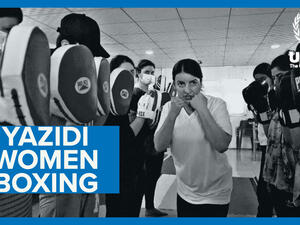Iraq: UN assessment team visited Basra Sunday
Iraq: UN assessment team visited Basra Sunday
A joint UN assessment team, led by UNHCR's chief of mission for Iraq in his capacity as alternate designated official for security, on Sunday visited Basra in the south of the country together officials from three other agencies at the request of the UN Secretary-General's Acting Special Representative, Ross Mountain.
This is the second time that the UN has sent expatriate staff into southern Iraq after most international personnel were withdrawn from the country following last August's devastating bombing. The team spent a day in Basra after crossing over from Kuwait to assess the security situation and overall conditions on the ground and meet with colleagues and partner agencies. They reported that Basra appears busier, in part due to the return of many Iraqis to the south.
According to the Iraqi Ministry of Trade, over 122,000 refugees have returned to Iraq's nine southern governorates since last year. UNHCR is unable to verify these figures, although authorities in Iran have spoken about the spontaneous repatriation of more than 70,000 Iraqis who were formerly mainly settled amongst the local population. Since last July, more than 9,000 refugees have returned on UNHCR-facilitated convoys, including 4,864 from Saudi Arabia's Rafha camp and the balance from camps in western Iran.
The returning refugees are going back to communities impoverished by decades of conflict and sanctions. The UN team's meetings on Sunday once again highlighted increased fears that if the flow of people is not regulated, economic hardship and social unrest will increase. The team was told that there are more than 60,000 malnourished children in four southern governorates.
A large majority of the returnees have never before lived in Iraq, which puts enormous additional strains on the housing situation. Returning refugees sometimes lack shelter or family members who can host them, while other returnees are doubling or tripling up with relatives, adding to an already often crowded situation. Because of the lack of investment in recent years and the sudden return of people to the region, there are immediate shelter needs and together with partners we are looking at providing housing for the most needy. This year we foresee the construction of 1,000 houses in the south and the rehabilitation of another 1,500 to benefit the most vulnerable populations, particularly female-headed households. At the same time, UNHCR will continue its community based activities in returnee-affected communities to ensure access to basic services such as water, sanitation, education- and primary health rehabilitation.
Also last Sunday, the 18th convoy carrying Iraqis opting for voluntary repatriation from Saudi Arabia's Rafha Camp arrived in Basra after transiting Kuwait overnight. Rafha currently shelters only 483 refugees, down from more than 33,000 who were assisted immediately following the 1991 Gulf war after many were resettled and others opted to return. The returnees are provided with repatriation grants from UNHCR, as well as plastic tarpaulins and other relief items and tents are available for those in need.


